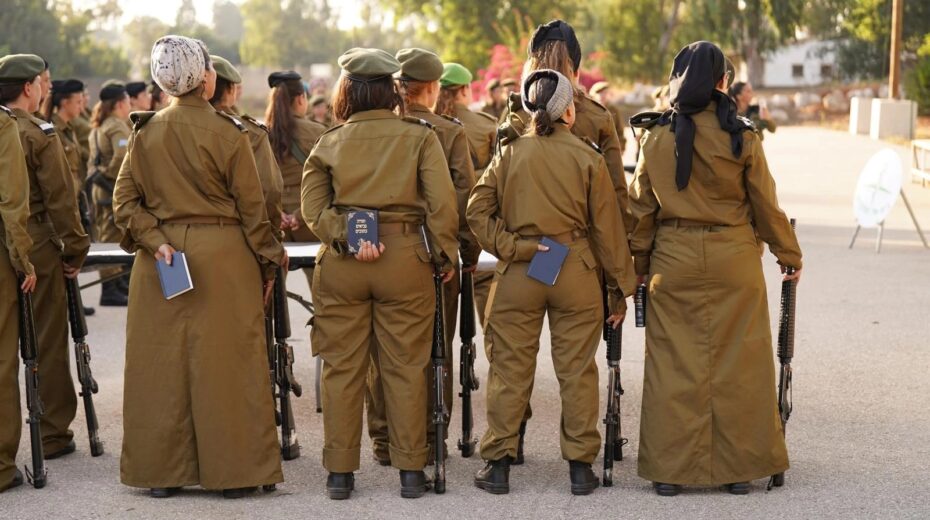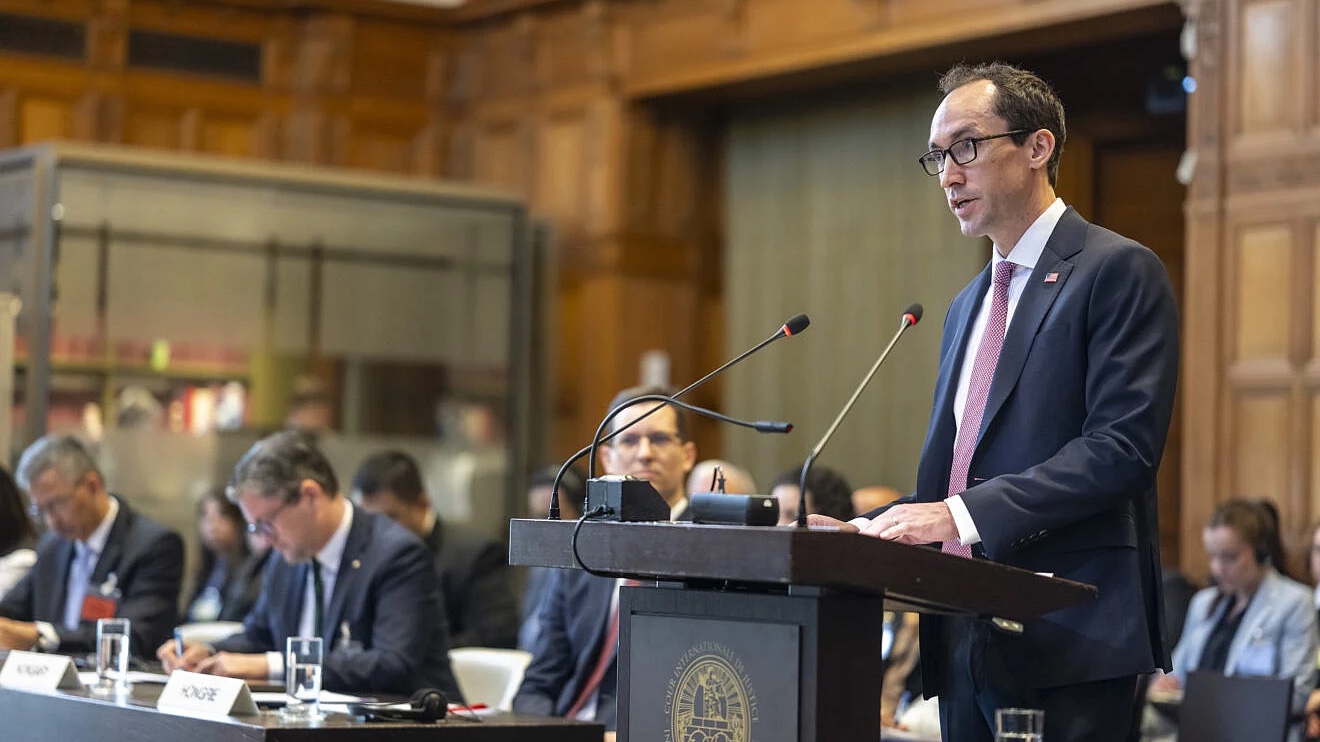“You have decided to leave everything in your private life behind, join the national effort and commit yourself,” begins Commander Shaked Milo, a company commander of the Magal Division, in her speech at the swearing-in ceremony of new recruits at the Dotan base. However, these are not your average teenage boys who have been drafted into the army. In front of her stand 61 new recruits, religious women who were previously exempt from military service – and who have now volunteered.
“I am very much looking forward to this task, and above all I am looking forward to starting reserve service, which is coming up soon,” says Private Tzvia Shelter, a mother of four and a pediatric nurse by profession.
This is the second round of a special project that enables women to enlist in jobs that the army has a critical need to fill. They undergo an abbreviated training and immediately enter reserve service.

Tzvia arrived at the recruiting office about two weeks ago. In a Hebrew-language interview on the IDF website, she described coming full circle: “When I was younger, I was exempted from the army for religious reasons, so I went to national community service, like my friends. For two years I worked as a volunteer at Levinstein Hospital and had a challenging and satisfying time, but I always had a sense of loss that I didn’t get to experience the army.”
“On October 7, and in the months that have passed since then, my desire to enlist only grew stronger, especially when I heard that there was a great need for additional medical personnel in the army,” she recalled. “When I came across an advert about this project, which allows women like me to sign up for a short training course and then immediately serve in the reserves in the profession I specialize in, I knew I would take the opportunity.”
So over the course of two weeks, she and 60 other women took courses on first aid and the spirit of the Israel Defense Forces, got to know the shooting ranges and guard duty, and, like any newcomer, stood in lines of three outside the dining hall.
“Of course there are challenges, but after fighting so hard to get here, everything else is a piece of cake,” she said with a smile, “even if we have to take orders from a commander who is only three years older than my daughter, we all do it with love.”
As the base commander, Squad Leader Reut Zakaria, confirms, the command staff has been fully prepared due to the nature of the training: “It is not an easy task for them to command older soldiers. They learn to really lead the female soldiers and not just on the basis of authority.”

The company commanders have made the necessary adjustments so as not to interfere with the trainees’ religious way of life and to give them the opportunity to maintain constant contact with their families. “They see the needs of each individual soldier in the company,” explained Zakaria. “The conversation with them is always at eye level.”
The decision to send them through basic training and not recruit them directly into the reserves expresses the importance of basic training in the Israel Defense Forces: “It is their gateway to the system, allowing them to align themselves with every other soldier in the army and speak their language. Basic training gives them a sense of belonging to a framework and a variety of opportunities.”














